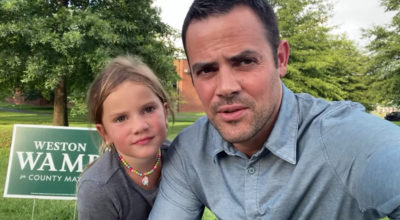
July 26, 2022 — In the month since the U.S. Supreme Court ended the federal guarantee to an abortion, at least two Tennessee clinics have announced they will close, other providers are directing patients out of state and advocates are gearing up for upcoming battles at the state Capitol.
By Anita Wadhwani / Tennessee Lookout
Currently, Tennessee has a 6-week abortion ban, which outlaws abortions before many women realize they are pregnant. The 2020 law was allowed to take effect by a federal appeals court within days of the June 24 decision in Dobbs v. Jackson Women’s Health Organization.
Soon, nearly all abortions will be criminalized in the state. A “trigger” abortion ban is set to take effect 30 days after the Supreme Court formally enters their judgement in the Dobbs case. As of Friday, the court’s docket did not reflect the entry of the final judgment.
In the interim, abortion access has dwindled among the state’s existing abortion providers. On average in Tennessee, more than 800 abortions are performed each month, according to the most recent state health department data available. The full picture of how individuals have navigated the state’s restricted landscape over the past month remains unclear.
CHOICES Memphis Center for Reproductive Health is one of two clinics that have continued to provide abortions under the narrow 6-week abortion ban that is now law in Tennessee. Carafem, a provider in Mt. Juliet is the other. A spokesperson for Carafem did not respond to an information request.
As of last week, CHOICES had provided 170 abortions since the Supreme Court ruling — all of them at no cost “in order to help our patients access abortions quickly,” the clinic posted on social media. The clinic is in the process of opening a new location in Carbondale, Ill to provide abortions.
“Tennessee already had a very small number of clinics. Access to abortion has already been so difficult. It was already out of reach for so many people.”
– Brianna Perry, Healthy and Free Tennessee
The Knoxville Center for Reproductive Health—the only abortion provider in the city – has announced it will permanently close July 28 after 47 years in operation. All of its staff have been laid off, a receptionist who answered the phone said. She declined to provide her name, saying “we’re all about to be out of a job.”
The Bristol Regional Women’s Health Center, which provides care in northeast Tennessee and the surrounding Appalachian region, has ceased providing abortions for the first time in more than 30 years. It is planning a move to a new clinic over state lines in Bristol, Va. A GoFundMe campaign to aid in the clinic’s relocation thus far raised over $100,000.
Planned Parenthood clinics in Memphis and Nashville have ceased providing abortions. Navigators are connecting patients to resources that can assist in traveling to other states for the procedure, a spokesman said Friday.
Limited abortion access in Tennessee is not a new phenomenon, noted Briana Perry, a volunteer with Healthy and Free Tennessee, a network of organizations and individuals that advocate for reproductive health and emphasizes the barriers disproportionately facing people of color and those living in poverty.
“Tennessee already had a very small number of clinics,” Perry said. “Access to abortion has already been so difficult. It was already out of reach for so many people.”
Self-help at home
Perry said her group’s focus is on what happens to those who try to manage their own abortions at home. Perry cited the case of a Murfreesboro woman who was accused of trying to end her pregnancy with a coat hanger and indicted on first degree attempted murder charges in 2015.
After a year in jail awaiting trial, the woman pled guilty to the lesser charge of “attempted procurement of a miscarriage” before being released – one of many possible charges advocates fear could be waiting for those who seek to end their pregnancies themselves.”
“Right now,” Perry said, “we are trying to make sure people are not incarcerated.”
Source: Tennessee Lookout

